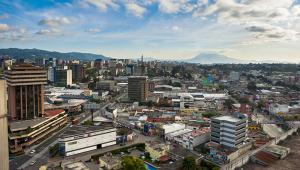The International Commission against Impunity in Guatemala (known as CICIG, its initials in Spanish) has smashed some of the country’s biggest criminal networks, indicted drug traffickers and business leaders, and even jailed former presidents.
It was created in 2007 following an agreement between Guatemala’s national congress and the United Nations.
The commission received financial and political backing from the US until Donald Trump became president, and since then its opponents have built up the momentum they needed to force it out.
This culminated in current Guatemalan president Jimmy Morales unilaterally deciding to kick CICIG and its director out of the country by 3 September.
Morales, who was elected in 2015 and had said he would continue CICIG’s work, had himself become the subject of a probe by the commission, which alleged there were financial irregularities in his campaign.
His successor, Alejandro Giammattei, will take office in January, but earlier this month a CICIG spokesman declined to comment on what his victory meant for tackling graft, but told Reuters there was a “long way to go”.
Daniel Zovatto, a senior fellow at Brookings Institution, told American National Public Radio’s ‘All Things Considered’ current affairs show on Sunday that the Trump administration has wrongly been concentrating all of its attention on migration, rather than corruption, to the CICIG’s detriment.
In its bid to reduce the number of people from Latin America arriving at its Mexican border, the US government did a deal with Guatemala (with the threat of economic sanctions) so that it would become a so-called ‘third safe country’ for migrants.
This was despite Guatemala being beset with poverty and violence of its own.
Zovatto said: “For this region, if we don’t address the fundamental issues, migration will continue.”












